
YouTube Julie Swetnick
In her interview for Showtime’s The Circus, which lasted a minute or two, Julie Swetnick said her accusations against Brett Kavanaugh need to be investigated. The FBI has not reached out to her.
Swetnick came forward as the third woman to publicly accuse Supreme Court nominee Brett Kavanaugh of sexual misconduct.
Represented by attorney Michael Avenatti, Swetnick signed a sworn affidavit that alleges that in the 1980s, Kavanaugh and his friend Mark Judge, a conservative writer ,and now recovering alcoholic his lawyer says, helped to perpetrate or facilitate the drugging of girls with alcohol spiked with long-since banned Quaaludes, a sedative and hypnotic drug, and then teen boys would “take advantage” of and often “run trains” or line up to have sex with an incapacitated girl; gang rapes. She also says that she herself was gang-raped at one of those parties and says that Kavanaugh and Judge were present, though she does not implicate them in her rape.
Following the Senate Judiciary Committee hearing where accuser Dr. Christine Blasey Ford testified that Kavanugh tried to rape her in 1982, with Kavanaugh denying it flat-out, the committee voted to move his confirmation vote forward to the full Senate. But not before a one-week FBI investigation that may or may not have serious limitations set; namely they won’t be including Swetnick in their investigation according to the Trump White House, though Trump himself later tweeted the feds have a free reign. It’s still unclear but Avenatti said her story would be heard. And Sunday, it was. On Showtime.
Here’s what you need to know:
1. Swetnick Said She Doesn’t Know if Kavanaugh is a ‘Bad or Immoral Man’ Now During a Brief Interview on the Showtime Show ‘The Circus’ But Wants Allegations Against Him, Including Hers, to be Investigated
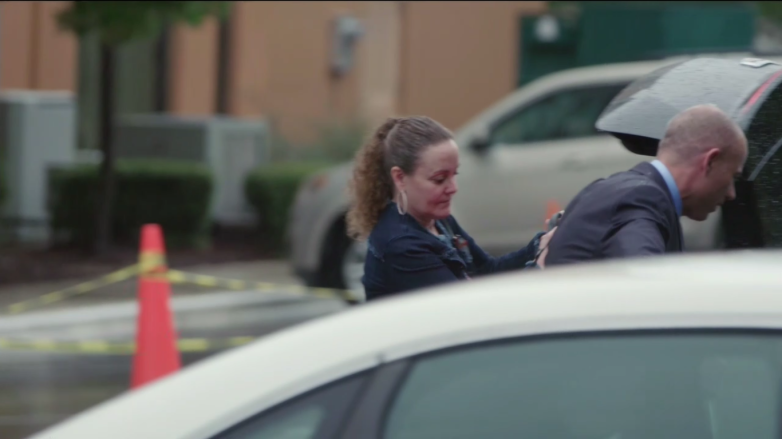
Swetnick said it wasn’t that she’d planned to come forward one day before the Senate Judiciary Committee hearing where Blasey and Kavanaugh would testify, rather, she said, “circumstances brought it out that way.”
“This is something that occurred a long time ago and it’s not that I just thought about it, it’s been on my mind ever since the occurrences…” She said there needs to be an investigation. “Brett Kavanaugh is going for a seat where he’s going to have that seat (for life). From what i experienced first hand, I don’t think he belongs on the Supreme Court.”
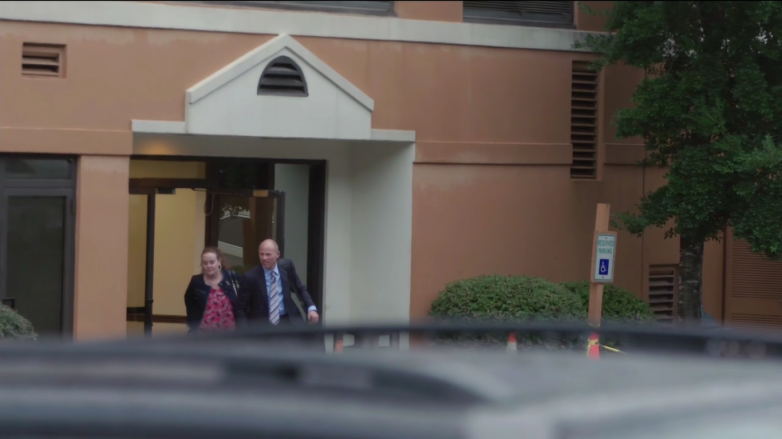
When asked by John Heilemann if she thought Kavanaugh was a “bad or immoral man,” she said, “I don’t know if he’s a bad or immoral man. Maybe under the alcohol he is. Maybe when he was younger he didn’t have the same resistant. But I think it needs to be investigated and I think the facts need to come out.”
2. Swetnick’s Claims of ‘Gang Rapes’ Are Not Far Off From Stories Shared by Other Women Who Attended a Number of Washington D.C.-Area Private High Schools
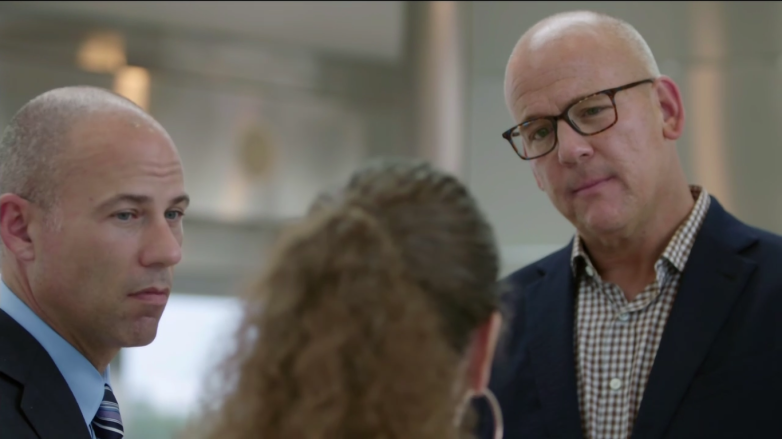
In a post on Slate, Alexandra Lescaze, filmmaker and executive director of the Sidney Hillman Foundation, wrote about her Facebook post on the alumni page of National Cathedral School she shared with her 1988 classmates and that Dr. Christine Blasey Ford’s “story was bringing back disturbing high school memories.”
“Apparently, I was not alone. A lot of women now in their 40s and 50s, who went to these single-sex D.C. prep schools in the 1980s, have been reaching out to each other in fraught emails and chats over the past week,” started Lescaze.
She said at a Beach Week party, where D.C.-area private school teens rented houses for huge get together’s in June, she recalled one in particular when she and her “then-boyfriend when it dawned on us that there was a drunk girl in a room down the hall, and boys were ‘lining up’ to go in there and, presumably, have their way with her. We didn’t know for sure, but my boyfriend and my friend’s boyfriend went to interrupt it and sent her on her way down the stairs.”
Lescaze wrote that her “friend has told me she remembers boys saying, ‘I’m next,’ which was why our boyfriends went to stop it. That was the only time I can clearly remember a situation that was so obviously a ‘lineup,’ as it was referred to by some at school. My friend remembers witnessing another, and though there weren’t lineups of this nature at every party, they happened often enough that we had a term. We didn’t call it rape.”
“It was not always so formal a queue,” she wrote. “I remember another time when boys were sitting in kind of a campfire circle that could have started as a game of spin the bottle. But by the time I walked through the room there was a girl who was drunk and in the center of the circle, and the boys were taking turns putting their hands up her skirt instead of kissing her.”
“For these girls who were assaulted, it felt like no one had adequately looked out for them, in a place where groups of two or more boys might be looking for someone who was drunk and vulnerable,” she wrote. “I attended these parties knowing there was always a chance of this happening to me, were I not careful. I saw older boys who didn’t participate seem more angry at the girls who had “let” themselves get into bad situations. Our boyfriends had been able to stop that lineup only because they were seniors. But it was often like this: a solitary girl who found herself helpless against the power of a group of boys. It’s why Ford’s description of her alleged attack sounded so plausible to me—two drunk boys who had cornered her and were egging each other on. We went through years of parties like this intimidated, afraid, and horrified. And yet it was also just the way things were.”
“The way things were,” Lescaze wrote.
Indeed, in 1990, the heads of seven D.C.’s distinguished private, and mostly parochial schools wrote a letter to parents, an unusual move it was described at the time, to warn that their kids were hosting massive, hundreds in attendance often, traveling habitual and always unsupervised parties where, The Washington Post reported at the time, said “excessive drinking and sexual license are common.”
The letter came from the head of schools at Georgetown Preparatory, Landon, Gonzaga College High, National Cathedral, Holton-Arms, Sidwell Friends and St. Albans schools.
“It would be hard to devise a better recipe for disaster than a social scene that includes the anonymity provided by a ‘open party,’ no adult supervision, considerable amounts of alcohol, and teenage hormones which encourage sexual or violent behavior.”
3. It’s Not One Woman, It’s Not Two. Not Even Three. Many Women Remember & Are Talking to One Another
Vanity Fair reported on Julie Jakopic who graduated from Holton-Arms in 1978. She said she was “date-raped” at a New Years Eve party.
On her Facebook page, Vanity Fair wrote, Jakopic said she “was ashamed. We had friends in common. I told no one for a decade. Not until I was in training to become a sexual assault counselor. I learned in that training that my delay and most delay is normal. You blame yourself. Society blames you. Why tell anyone? Today, I remember the date because it was New Year’s Eve of my sophomore year. I remember the house because it was his fraternity house. I remember only his first name. I remember what I was wearing and never wore again. Do you believe me? Then you should believe Dr. Ford.”
A woman who attended Holton-Arms in the 90s told Vanity Fair she was assaulted “by a boy from Landon, while his friend closed the door and stood in the corner, chuckling. She had known both of them since elementary school …”
“Not popular she said, she was brought to a cotillion by a friend where teenagers were drinking and did so through the night. She arrived and was handed champagne. She was 16. “I walked into a gilded sitting room and saw my old neighbor, another Holton girl, vomit into a large urn that looked like it belonged in the National Gallery of Art.”
She said parents rented adjoining hotel rooms for the debutante after-party sans chaperones. The girl was too drunk to walk or speak straight and was taken by boys into a bedroom and the “drunker one got on top of me.”
Too inebriated to rape her, she said, the boys laughed at their drunkenness. She stumbled out of the room. And she recalled another attempted rape; she and a group of friends were drinking. She was with a boy she liked. But another drunk boy began groping her and another boy intervened pulling the teen sexually assaulting the girl off of her. She messaged him recently & thanked him for standing up for her. He confirmed the story to Vanity Fair. His description of the events and his reaction explains a lot. Boys who sexually assault girls were never taught to respect women and never feared consequences such was their privilege.
The man told Vanity Fair: “I knew things like this happened, and that women were casually taken advantage of all the time, especially in these circles. Guys were fully aware of what they were doing. They had just been raised in a world where consequences did not exist, and they had not been properly taught about consent or how to respect women. I don’t think men are born with an innate lack of respect for women. It is a learned behavior.”
4. Since She’s Come forward, Swetnick’s Background Has Been Under the Microscope. She Was the Respondent in a Domestic Violence Case, But it was Dismissed When Her Ex Didn’t Show up For Court. She Didn’t Show up Either
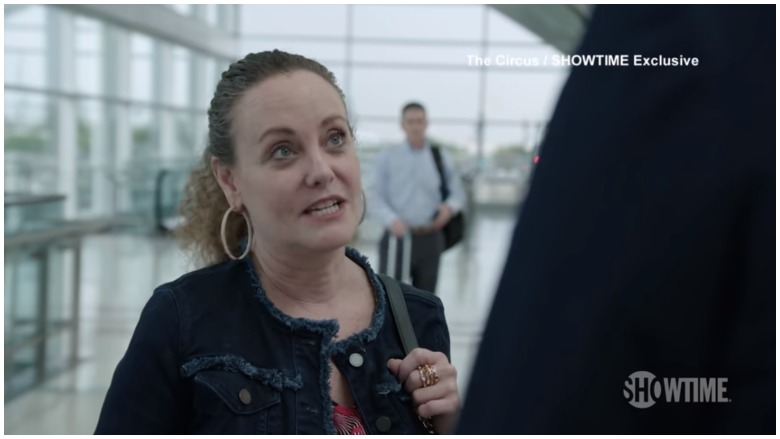
Swetnick was the respondent in a domestic violence case in Miami, Florida. According to online records, on March 1 2001 Richard Vinneccy went to North Miami Dade court to request an injunction against Swetnick, described as a request for a restraining order. The law in Florida requires a hearing within 14 days of a complaint filed.
A supervisory court clerk in Miami-Dade County told Heavy that while the complete court files of the 2001 domestic violence case referred to family court brought by the former boyfriend of Julie Swetnick have long since been “destroyed,” the clerk was able to confirm what had not been available online: why the case was dismissed. Heavy was told that the reason for the dismissal was “failure to appear.”
The case didn’t move forward because neither of them showed up. Vinneccy told reporters his version, but given the records do no longer exist, it’s a he said, he said.
5. Sued For Defamation & Fraud in a Detailed Complaint in 2000 by Tech Business WebTrends, a Month After Filing, the Case Was Dismissed & No One Wants to Talk About It
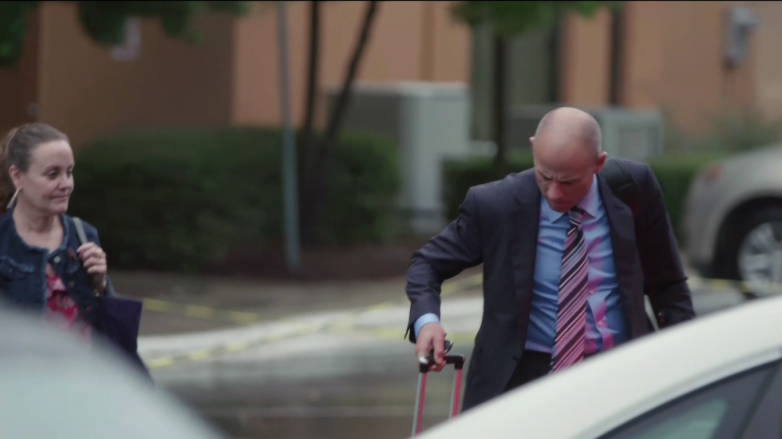
Eighteen years ago, WebTrends, a web traffic analytics company, filed a lawsuit against Swetnick for allegedly defaming the company with what it said were false sexual assault allegations.
The suit also alleged she defrauded the company by claiming to have graduated from Johns Hopkins University and had not, and collected unemployment insurance as well as disability payments after working for the company for days.
The original lawsuit complaint, which goes into great and specific details and names names, was dismissed 30 days after it was filed.
WebTrends declined to comment for local media in Portland. An employee that had reached out to Heavy determined they’d be better off not talking about it.
Avenatti said the case was dismissed because it was a non-starter.